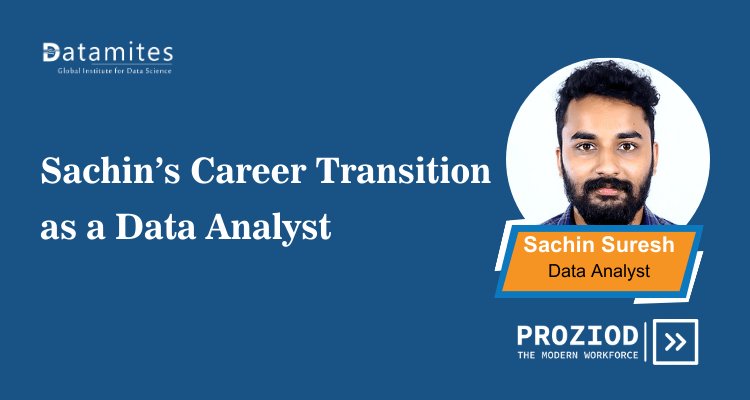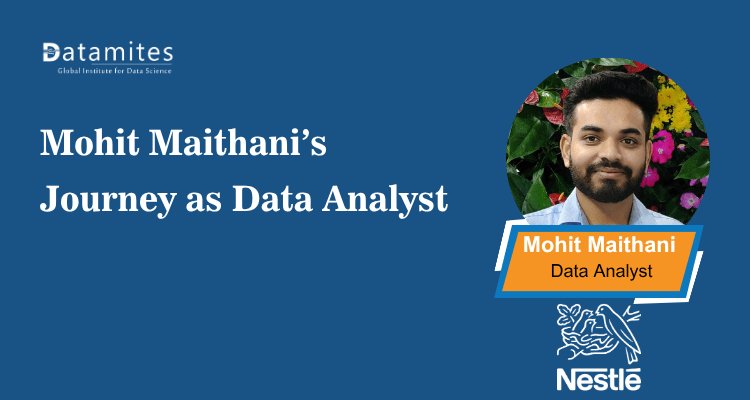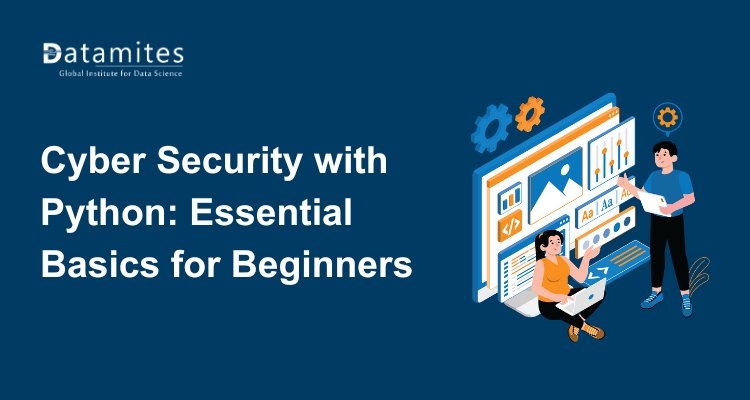Mastering Data Analytics in India
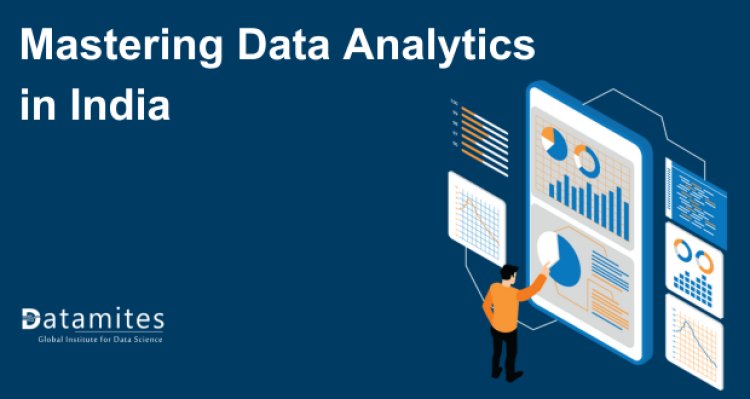
Data analytics in India has emerged as a crucial tool for businesses, governments, and organizations to harness insights from vast amounts of data, driving informed decision-making and competitive advantage.
Based on findings from Acumen Research and Consulting, the global data analytics market soared to USD 31.8 billion in 2021. Projections indicate substantial growth, with the market expected to skyrocket to USD 329.8 billion by 2030, boasting an impressive compound annual growth rate (CAGR) of 29.9% from 2022 through 2030.
In this article, we will delve into the burgeoning landscape of data analytics in India, exploring its growth trajectory, key players, and the transformative impact it has across various sectors.
Delving into the Domain of Data Analytics
Data analytics involves analyzing raw data to extract insights and make informed decisions. It encompasses various techniques and tools to uncover patterns, trends, and correlations within datasets. In India, data analytics has witnessed a surge in popularity and advancement in recent years due to several factors. The increasing availability of data, fueled by the digital revolution and the widespread adoption of technology, has created vast opportunities for businesses and organizations to leverage analytics for competitive advantage.
Based on findings from a Maximise Market Research study, the Data Analytics Market achieved a valuation of USD 41.74 billion in 2022. Projections suggest a substantial growth of 29.47% from 2023 to 2029, indicating a significant rise in the sector's revenue. The overall revenue of the Data Analytics industry is anticipated to reach approximately USD 245.53 billion, reflecting the sector's robust expansion in the coming years.
Moreover, the rise of e-commerce, social media, and mobile applications has generated massive amounts of data, driving the need for sophisticated analytics solutions to derive meaningful insights. As a result, there has been significant growth in the number of data analytics professionals, as well as in the development of specialized education and training programs to meet the demand for skilled talent in this field.
Refer these below articles:
- Top Features of Power BI for Effective Data Analysis
- Difference Between Data Science and Data Analytics
- Data Engineer vs Data Analyst
Why Data Analytics?
Data analytics involves extracting actionable insights from vast amounts of data, enabling organizations to make informed decisions, optimize processes, and gain a competitive edge. With India witnessing a digital revolution, fueled by increasing internet penetration, smartphone usage, and digital transactions, the volume of data generated is skyrocketing. Consequently, there's a surging demand for skilled professionals proficient in data analytics to harness this data deluge and derive meaningful insights.
Significance of Data Analytics in India
Data analytics holds significant importance in India due to its capacity to drive informed decision-making, optimize resource allocation, and enhance efficiency across various sectors, contributing to economic growth and innovation. Here are some key points highlighting the significance of data analytics in India:
- Business Decision Making: Data analytics enables businesses in India to make informed decisions by analyzing large volumes of data. This helps in identifying market trends, and consumer behaviour, and optimizing operational processes.
- Competitive Advantage: Companies that effectively utilize data analytics gain a competitive edge by understanding customer preferences, predicting market demands, and optimizing pricing strategies in the Indian market.
- Targeted Marketing: Data analytics allows businesses to segment their customer base in India and tailor marketing strategies accordingly. This results in more effective targeting, higher conversion rates, and better ROI on marketing campaigns.
- Cost Optimization: By analyzing operational data, Indian companies can identify inefficiencies, reduce wastage, and optimize resource allocation, leading to cost savings and improved profitability.
- Risk Management: Data analytics helps in identifying and mitigating risks for businesses operating in India. By analyzing historical data and market trends, companies can anticipate potential risks and take proactive measures to minimize their impact.
Read these below articles:
- Data Analyst Career Scope in Bangalore
- Data Analyst Career Scope in Chennai
- Data Analyst Career Scope in Pune
- Data Analyst Career Scope in Hyderabad
Demand for data analytics in India
In recent years, the demand for data analytics in India has surged across various sectors, driven by the need for informed decision-making, efficiency improvements, and competitive advantage. Here's an overview of the demand for data analytics in key sectors:
Healthcare:
- Predictive analytics for disease outbreak detection and prevention.
- Patient data analysis for personalized treatment plans and healthcare management.
- Optimization of hospital operations and resource allocation.
- Drug discovery and clinical trial optimization through data-driven approaches.
Education:
- Student performance analytics for personalized learning paths.
- Educational institution management and resource optimization.
- Predictive modeling for student enrollment and retention.
- Assessment of teaching methodologies and curriculum effectiveness through data analysis.
Finance:
- Fraud detection and risk management using advanced analytics techniques.
- Customer segmentation and personalized financial product offerings.
- Market trend analysis and investment decision support.
- Compliance monitoring and regulatory reporting through data analytics.
Retail:
- Customer behaviour analysis for targeted marketing and sales strategies.
- Inventory optimization and demand forecasting.
- Pricing strategy optimization through competitor analysis and market trends.
- Real-time analytics for personalized shopping experiences and recommendation systems.
Manufacturing:
- Predictive maintenance to minimize downtime and optimize equipment performance.
- Supply chain optimization through data-driven logistics and inventory management.
- Quality control and defect detection using machine learning algorithms.
- Production process optimization to enhance efficiency and reduce waste.
Mastering Data Analytics Educational Pathways in India
Mastering Data Analytics in India offers various educational pathways, including formal degree programs from prestigious institutions and flexible online courses, catering to diverse learning preferences, requirements of skills and career opportunities.
Formal Education
Several educational institutions across India offer specialized courses and degrees in data analytics, including Bachelor's, Master's, and even Ph.D. programs. Institutes like the Indian Institutes of Technology (IITs), Indian Institutes of Management (IIMs), and premier universities like the Indian Statistical Institute (ISI) provide rigorous academic training in data analytics.
Online Courses and Certifications: Platforms like DataMites offer a plethora of online courses and data analytics certifications in India. These programs cater to individuals seeking flexible learning options, allowing them to acquire skills at their own pace, often with hands-on projects and industry-relevant curricula.
Bootcamps and Workshops: Bootcamps and workshops conducted by specialized training providers or industry experts offer intensive, short-term training in data analytics. These programs focus on practical skills and real-world applications, making them ideal for professionals looking to transition into the field quickly.
Skill Set Required
To excel in data analytics, individuals need a combination of technical proficiency, analytical thinking, and domain knowledge. Some essential data analytics skills include:
- Programming Languages: Proficiency in languages like Python, R, SQL, and tools like MATLAB for data manipulation, analysis, and visualization.
- Statistical Analysis and Mathematics: A strong foundation in statistics, probability theory, and mathematical concepts is crucial for interpreting data and building predictive models.
- Data Visualization: Ability to effectively communicate insights through visualization tools like Tableau, Power BI, or Matplotlib for creating compelling visual representations of data.
- Machine Learning and AI: Understanding of machine learning algorithms, including regression, classification, clustering, and deep learning, to develop predictive models and extract patterns from data.
- Domain Knowledge: Familiarity with the specific domain or industry you're working in enhances your ability to derive actionable insights and tailor solutions to business needs.
Career Opportunities
Data analytics offers a diverse range of career opportunities across industries, including
- Business Analytics: Leveraging data to optimize business operations, improve efficiency, and drive strategic decision-making.
- Data Science: Extracting insights from complex datasets using advanced analytics techniques and machine learning algorithms.
- Data Engineering: Building and maintaining robust data infrastructure and pipelines for efficient data processing and analysis.
- Market Research and Customer Analytics: Analyzing consumer behaviour, market trends, and customer preferences to drive marketing strategies and product development.
- Healthcare Analytics: Utilizing data to enhance patient care, improve healthcare outcomes, and optimize resource allocation in healthcare systems.
Mastering a Data Analyst in India: Step by Step Process
Mastering data analysis in 6 months is an ambitious goal, but with dedication and a structured approach, it's certainly achievable. Here's a step-by-step guide to help you become a proficient data analyst within this timeframe:
Month 1: Introduction to Data Analysis
- Understand the Basics: Familiarize yourself with basic statistics, such as mean, median, mode, standard deviation, and variance.
- Learn Excel: Excel is a fundamental tool for data analysis. Master functions like VLOOKUP, PivotTables, and basic data manipulation.
- Introduction to SQL: Learn SQL basics for data retrieval, manipulation, and aggregation.
- Data Visualization: Explore tools like Excel charts or free tools like Google Data Studio to visualize data.
Month 2-3: Intermediate Data Analysis Skills
- Advanced Excel: Dive deeper into Excel with advanced functions, macros, and data-cleaning techniques.
- Deeper into SQL: Learn more complex SQL queries, subqueries, joins, and data manipulation techniques.
- Data Cleaning: Understand techniques for handling missing data, outliers, and inconsistencies.
Month 4-5: Advanced Concepts and Specialization
- Machine Learning: Study machine learning concepts, algorithms, and their applications in data analysis. Begin with supervised learning algorithms like linear regression, logistic regression, decision trees, and ensemble methods.
- Data Analysis Tools: Explore more specialized tools like Tableau, Power BI, or SAS for advanced data visualization and analysis.
Month 6: Internship, Project Work & Job Search
- Internship: Commence your internship by applying the skills acquired to become a data analyst in India. Actively engage with your team, ask pertinent questions, and participate proactively in ongoing projects.
- Capstone Project: Embark on a comprehensive capstone project amalgamating all acquired skills. Utilize statistical methodologies, programming prowess, and data visualization techniques to address a complex problem.
- Case Studies and Projects: Work on real-world datasets and projects to apply your skills and solidify your understanding.
- Portfolio Development: Initiate real-world projects to showcase your proficiency. Craft a portfolio elucidating your projects and the solutions you devised in detail.
- Networking: Participate in industry events, webinars, or online communities focused on data analysis.
- Job Search and Interview Preparation: Tailor your resume and cover letter to emphasize your skills and project accomplishments.
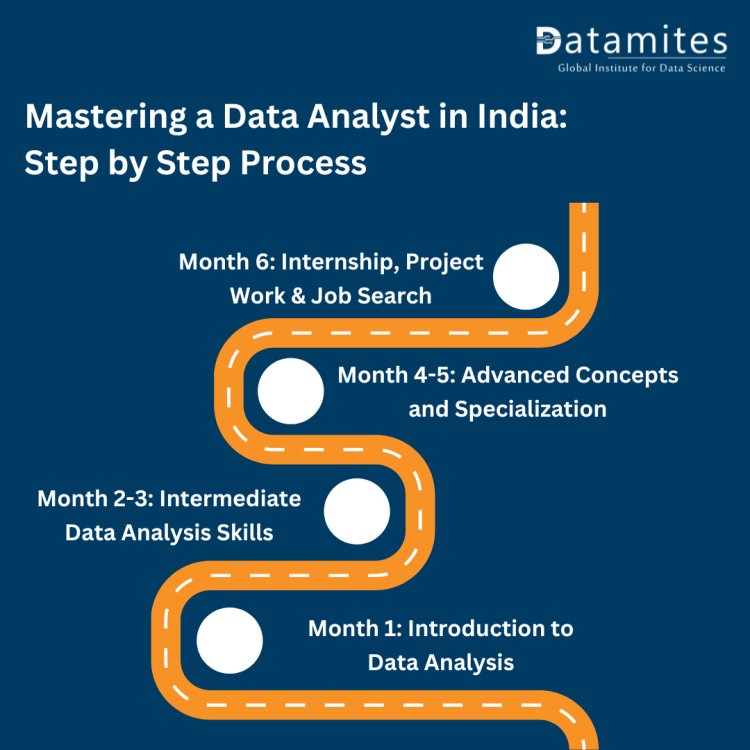
Salary Trends for Data Analysts in India
The salary for a Data Analyst in India can vary considerably, impacted by factors including experience, skill level, industry, and employer.
Entry-Level Data Analysts: According to data from Glassdoor, individuals new to the field of data analytics, typically with 1-2 years of experience, can anticipate earning approximately INR 3,50,000 as an entry-level data analyst salary in India. It's important to note that these figures may vary depending on factors such as the company's size and the industry in which you are employed.
Mid-level Data Analyst: Data Analysts with 2-5 years of experience, showcasing increasing proficiency and capability in handling more intricate data analysis responsibilities, typically command an average annual data analyst salary in India ranging from INR 6,55,000 per year as data sourced from Glassdoor.
Senior Data Analyst: Experienced professionals with over 5 years in the field, particularly those with specialized skills or experience in sought-after sectors, have the opportunity to secure higher salaries. According to Glassdoor, Senior Data Analysts in India can earn annual salaries ranging from INR 11,00,000 per year.
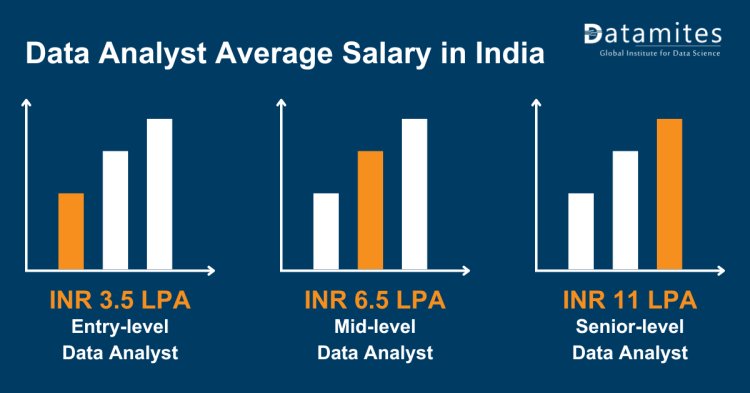
Factors influencing data analyst salaries in India include:
- Experience level: More experienced analysts typically command higher salaries.
- Skill proficiency: Advanced skills in data analysis tools and techniques can lead to higher pay.
- Industry demand: Salaries can vary based on demand within specific industries such as IT, finance, healthcare, etc.
- Company size: Larger companies often offer higher salaries compared to smaller organizations.
- Geographic location: Salaries may differ based on the cost of living and demand for data analysts in different cities.
Also refer these below articles:
- Data Analyst Course Fee in Bangalore
- Data Analyst Course Fee in Chennai
- Data Analyst Course Fee in Hyderabad
- Data Analyst Course Fee in Pune
Future of data analytics in India
The future of data analytics in India is incredibly promising and poised for exponential growth and innovation. With the country's robust digital infrastructure, vast talent pool, and increasing adoption of emerging technologies, data analytics is set to play a pivotal role across industries. From driving business transformation and enhancing customer experiences to revolutionizing healthcare delivery and optimizing government services, the applications of data analytics are limitless.
As data continues to proliferate and technology evolves, the demand for skilled data professionals will skyrocket, offering ample opportunities for individuals to thrive in this dynamic field and contribute to India's digital revolution.
Mastering data analytics in India opens up a world of opportunities for individuals with the right skill set and mindset. With the rapid digitization of businesses and the advent of emerging technologies like artificial intelligence and big data, the demand for skilled data professionals is only set to soar.
By pursuing quality education, continuously upskilling, and staying abreast of industry trends, aspiring data analysts can embark on a fulfilling journey towards success in India's dynamic data-driven landscape. Whether you're drawn to the thrill of uncovering hidden insights or driven by the desire to make a meaningful impact, the world of data analytics awaits, promising endless possibilities for those who dare to explore it. Embark on your path to becoming a data analyst in India by joining DataMites.
DataMites, a renowned institute, stands out for providing exceptional data analytics training in India. With multiple conveniently located centres in Bangalore, Chennai, Pune and Hyderabad, they offer comprehensive programs tailored to empower aspiring data scientists with essential skills and knowledge for success in the field. These courses also include prestigious certifications from IABAC and NASSCOM, ensuring that students receive top-tier data analytics education in India. For individuals seeking classroom data analytics courses in India, DataMites is a reliable and easily accessible choice to kickstart a fulfilling career in this thriving industry.


